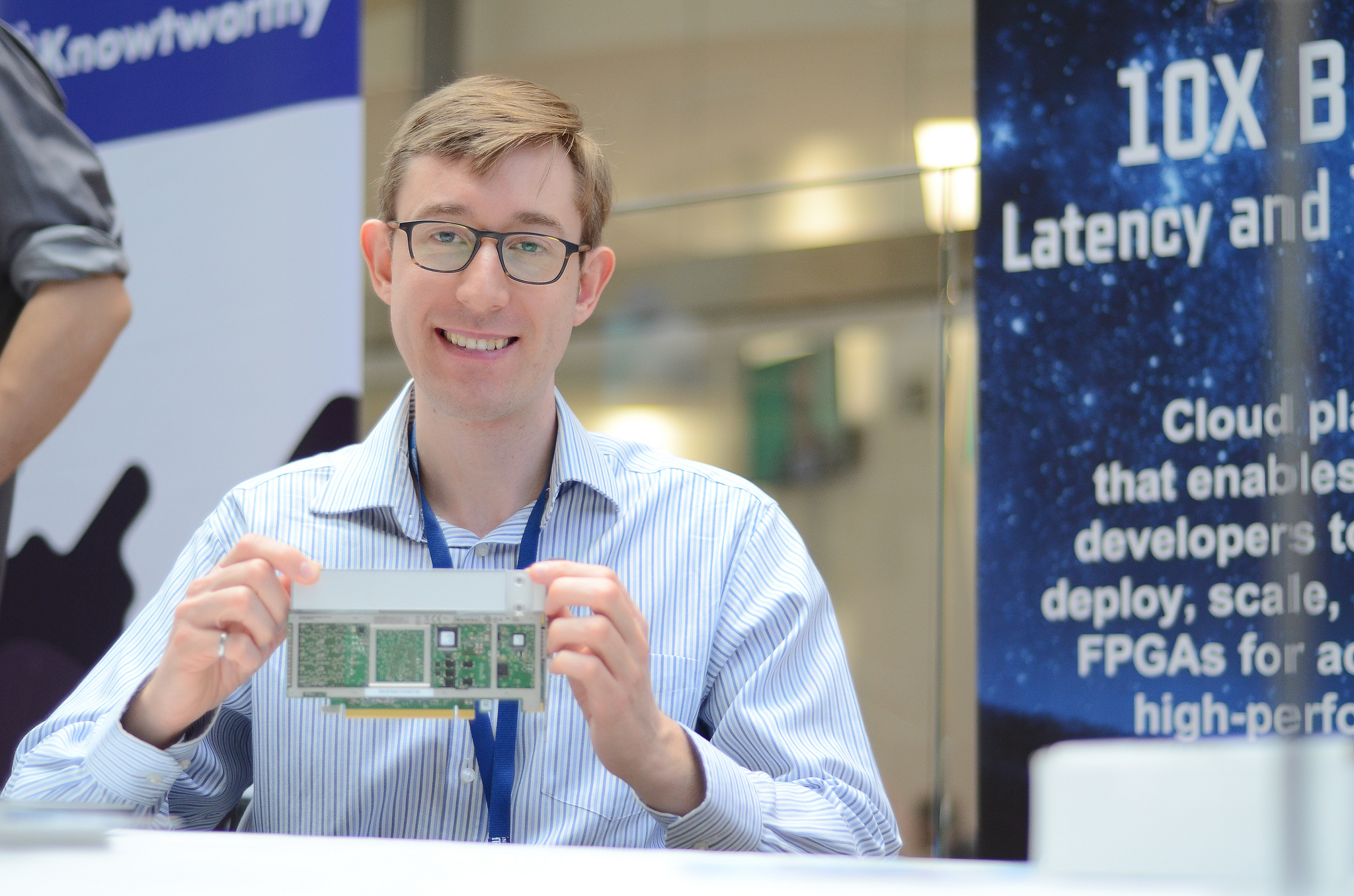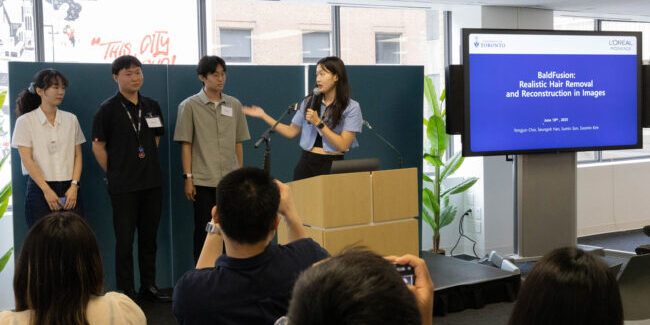LegUp Computing Inc., a startup with origins in The Edward S. Rogers Sr. Department of Electrical & Computer Engineering (ECE) has been acquired by Microchip Technology Inc.
Leveraging technology originally developed at the labs of Professors Jason Anderson (ECE) and Stephen Brown (ECE), LegUp Computing was co-founded in 2015 by Professor Anderson, and alumni Andrew Canis (CompE PhD 1T5), Jongsok Choi (CompE MASc 1T2, PhD 1T6), and Ruolong Lian (ElecE BASc 1T3, CompE MASc 1T6).
LegUp built a high-level synthesis (HLS) tool that makes the design of field-programmable gate arrays (FPGAs) much easier. FPGAs usually require hardware design skills, but an HLS tool, such as LegUp’s, allows programmers to write software that can be converted automatically into a hardware circuit.
This acquisition moves Microchip’s platform in line with their two biggest competitors, Xilinx and Intel, who have their own HLS tools.
Anderson is pleased that the LegUp team will stay together. “The last five years has seen us develop such a great working relationship. The culture fit is very good with Microchip. It’s also very gratifying that the LegUp tool will be used by so many engineers.”
“The success of Professor Anderson’s research-based startup is an indication of the importance of entrepreneurship within ECE as an accelerator of innovation and impact,” adds Professor Deepa Kundur, Chair of ECE.
Microchip’s Bruce Weyer, Vice President of the FPGA business unit, cites LegUp’s deep experience in HLS and related technologies as a huge plus for the Microchip client community. He says they will quickly see the benefits of the easy-to-use compiler.
Microchip plans to fully integrate the LegUp tool into its platform by mid-2021.




